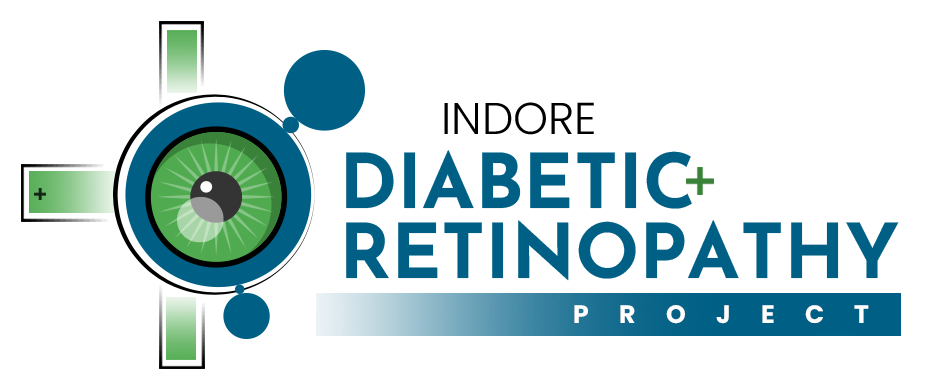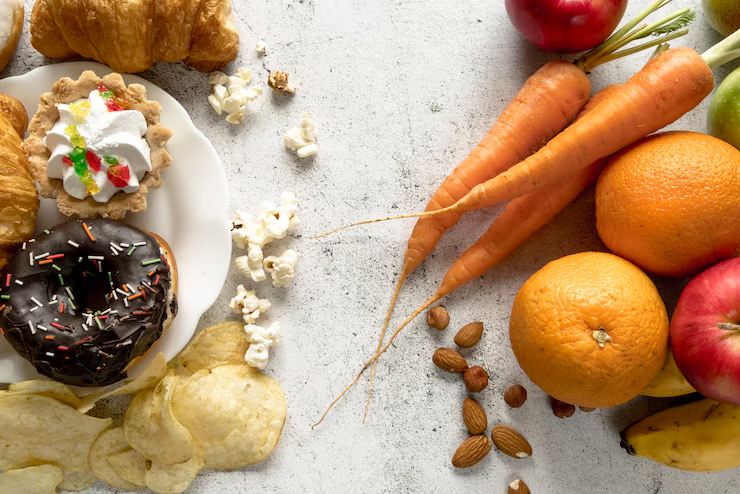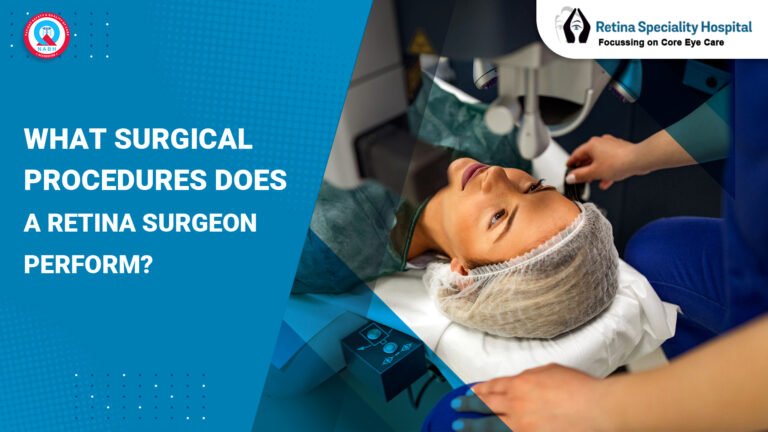If you’ve been diagnosed with diabetic retinopathy, you’re probably worried about how to protect your vision. One often-overlooked yet crucial piece of the puzzle is your diet. The food choices you make every day can either help slow the progression of diabetic eye disease—or make it worse.
This post will walk you through the best and worst foods for diabetic retinopathy, helping you support your eye health through smart nutrition. Whether you’re managing diabetes or caring for someone who is, these tips are easy to follow and backed by common sense and science.
Let’s break down what to eat, what to avoid, and how your diet connects to your overall eye health—especially if you’re seeking diabetic eye treatment in Indore or consulting a retina specialist for diabetes.
Why Diet Matters in Diabetic Retinopathy
Managing Blood Sugar Is Key to Protecting Your Eyes
High blood sugar damages the blood vessels in your retina. Over time, this can lead to blurry vision, floaters, or even permanent vision loss. The right diet helps you:
- Control blood sugar levels
- Reduce inflammation
- Support healthy blood vessels
- Slow the progression of diabetic retinopathy
Whether or not you’re undergoing diabetic retinopathy laser treatment in Indore, what you eat plays a powerful role in your recovery and long-term vision health.
Top Foods to Eat for Diabetic Eye Health
1. Leafy Greens and Colorful Vegetables
Dark greens like spinach, kale, and broccoli are high in lutein and zeaxanthin, antioxidants that protect the retina.
- Add a cup of cooked spinach to your lunch
- Snack on raw carrots or bell peppers
2. Fatty Fish (Omega-3 Rich)
Salmon, mackerel, and sardines are rich in omega-3 fatty acids, which help reduce inflammation and support blood vessel health.
- Aim for 2 servings a week
- Consider a quality fish oil supplement if you’re vegetarian (check with your doctor)
3. Whole Grains with Low Glycemic Index
Choose oats, quinoa, barley, or brown rice instead of refined grains.
- Helps avoid blood sugar spikes
- Provides sustained energy without overworking your insulin system
4. Berries and Citrus Fruits
Blueberries, oranges, and strawberries are full of vitamin C and antioxidants.
- Enjoy fresh fruit instead of sugary snacks
- Add them to plain yogurt for a balanced breakfast
5. Nuts and Seeds
Almonds, walnuts, chia seeds, and flaxseeds provide healthy fats and magnesium.
- Snack on a handful daily
- Add ground flaxseed to smoothies or oatmeal
Foods to Avoid with Diabetic Retinopathy
1. Sugary Drinks and Sweets
These spike your blood sugar and offer zero nutrients for your eyes.
- Avoid sodas, sweetened juices, and desserts
- Replace with infused water or unsweetened teas
2. Refined Carbohydrates
White bread, white rice, and pastries raise your blood sugar quickly.
- Choose whole grain alternatives
- Read labels and look for fiber-rich ingredients
3. Processed and Fried Foods
These often contain unhealthy trans fats and excessive salt.
- Avoid fast food, chips, and deep-fried snacks
- Cook at home using olive oil or air fryers
4. Red and Processed Meats
Too much red meat increases inflammation and cholesterol.
- Limit intake to once or twice a week
- Opt for lean proteins like chicken, fish, or plant-based options
Bonus Tips for Better Eye Health with Diabetes
- Stay hydrated: Water helps maintain healthy blood circulation.
- Exercise regularly: It keeps blood sugar in check and improves vascular health.
- Get regular eye checkups: Especially important if you’re considering laser treatment for diabetic eye disease in Indore.
- Quit smoking: Smoking worsens blood flow and accelerates eye damage.
When to See a Retina Specialist for Diabetes in Indore
If you notice symptoms like blurred vision, floaters, or dark spots, it’s time to consult a specialist. Diabetic retinopathy laser treatment in Indore is more effective when done early. The sooner you act, the better your chances of preserving your vision. Visit a reputable retina specialist for diabetes in Indore to explore your options, whether you need a diet plan, laser treatment, or ongoing monitoring.
Frequently Asked Questions (FAQs)
1. Can diet reverse diabetic retinopathy?
A . Diet can’t reverse the damage already done, but it can significantly slow the progression and support eye health over time.
2. How does sugar affect my eyes?
A . High blood sugar damages the tiny vessels in your retina, leading to leakage, swelling, and scarring over time.
3. Are there any supplements I should take for diabetic eye health?
A . Omega-3, lutein, and vitamin C are commonly recommended, but always consult your doctor before starting supplements.
4. What’s the best way to monitor eye health with diabetes?
A . Get regular dilated eye exams, especially if you’re in a high-risk group or already experiencing symptoms.
5. Is laser treatment for diabetic retinopathy painful?
A . Laser treatments are usually not painful, though you may feel mild discomfort. Most people return to normal activities quickly.
Conclusion
Your diet plays a vital role in how diabetic retinopathy progresses. By making smart food choices and avoiding high-risk items, you take a powerful step toward protecting your vision for the long term.If you’re in Indore and experiencing symptoms of diabetic eye disease, don’t wait—reach out to a diabetic eye specialist today for early intervention and explore options like laser treatment for diabetic retinopathy.












